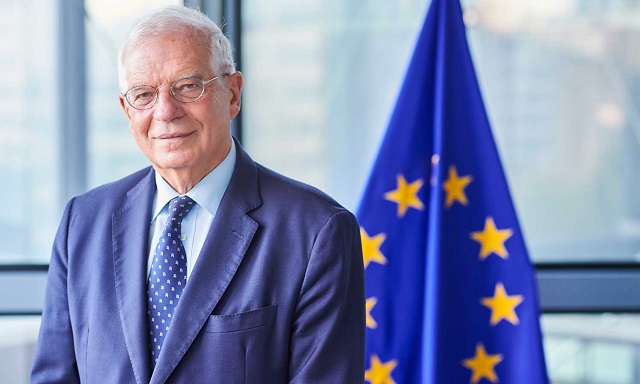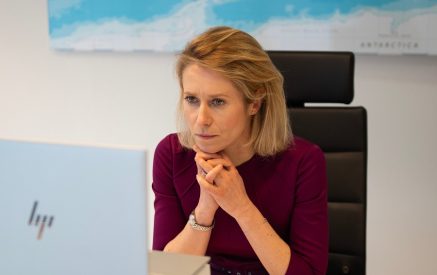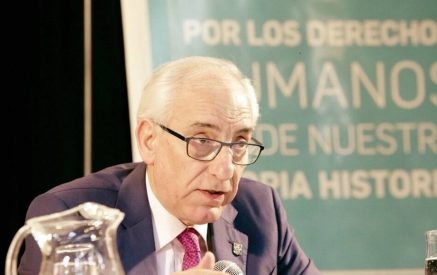On 22 March, EU foreign ministers meeting in Brussels reached a political agreement to give Ukraine another €500 million in arms and military equipment.
EU High Representative Josep Borrell said that all Member States remain “extraordinarily united in supporting Ukraine” – supporting the country diplomatically, on the international stage, economically, financially, with humanitarian assistance and supporting the Ukrainian armed forces.
He added that the EU “will continue isolating Russia, to call it out for war crimes, and for blatant violations of international humanitarian law”.
During the joint session of the Ministers of Defence and Foreign Affairs, the European Council also adopted the Strategic Compass for strengthening the EU’s security and defence policy.
Read also
EU High Representative Josep Borrell said the adoption of the document “sends a strong signal of unity and resolve”, but added it was not an answer to the Ukrainian war. “We started working two years ago, but it is very timely that we approve this Strategic Compass in a moment in which I think every citizen in Europe can understand the purpose of a document that wants to increase the strength of the European Union as a security provider”.
Borrell said that today the military expenditure in Europe – adding up all Member States – stood at about €200 billion, more or less four times more than the military expenditure of Russia. However, the EU should spend more than 1.5 % of the GDP on security and defence: “We have to spend more. But we have to spend better. Better means to avoid duplications and to avoid gaps”. He added that the EU did not want to create a European army – the European Member States armies will remain.
Borrell added that the Council agreed to the EU Rapid Deployment Capacity, which will allow the EU to mobilise up to 5,000 troops, trained and equipped to react to crises. “We will strengthen our Command-and-control capabilities, and we will conduct live exercises together. It has never happened,” added Borrell.























































